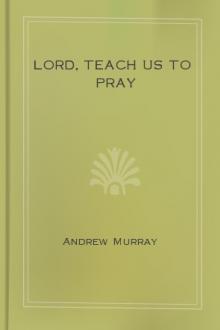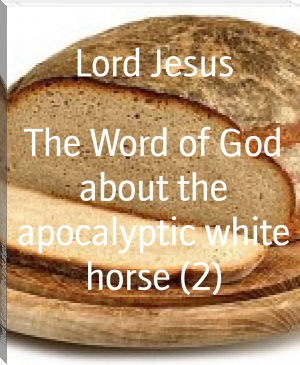St. George and St. Michael - George MacDonald (beach books .txt) 📗

- Author: George MacDonald
Book online «St. George and St. Michael - George MacDonald (beach books .txt) 📗». Author George MacDonald
But when he came near enough to see into the stall, there stood the ugliest brute he thought that ever ate barley. He was very long-bodied and rather short-legged, with great tufts at his fetlocks, and the general look of a huge rat, in part doubtless from having no hair on his long undocked tail. He was biting vigorously at his manger, and Richard could see the white of one eye glaring at him askance in the gloom.
'Dunnot go nigh him, sir,' cried Jacob Fortune, who had come up behind. 'Thou knows not his tricks. His name be his nature, and we call him Beelzebub when master Stopchase be not by. I be right glad to see your honour up again.'
Jacob was too old to go to the wars, and too indifferent to regret it; but he was faithful, and had authority over the few men left.
'I thank you, Jacob,' said Richard. 'What brute is this? I know him not.'
'We all knows him too well, master Richard, though verily Stopchase bought him but the day before he rode, thinking belike he might carry an ear or two of wheat. If he be not very good he was not parlous dear; he paid for him but an old song. He was warranted to have work in him if a man but knew how to get it out.'
'He is ugly.'
'He is the ugliest horse, cart-horse, nag, or courser, on this creation-side,' said the old man, '-ugly enough to fright to death where he doth fail in his endeavour to kill. The men are all mortal feared on him, for he do kick and he do bite like the living Satan. He wonnot go in no cart, but there he do stand eating on his head off as fast as he can. An' the brute were mine, I would slay him; I would, in good sooth.'
'An' I had but time to cure him of his evil kicking! I fear I must ever ride the last in the troop,' said Richard.
'Why for sure, master, thee never will ride such a devil-pig as he to the wars! Will Farrier say he do believe he take his strain from the swine the devils go into in the miracle. All the children would make a mock of thee as thou did ride through the villages. Look at his legs: they do be like stile-posts; and do but look at his tail!'
'Lead him out, Jacob, and let me see his head.'
'I dare not go nigh him, sir. I be not nimble enough to get out of the way of his hoof. 'I be too old, master.'
Richard pulled on his thick buff glove and went straight into his stall. The brute made a grab at him with his teeth, met by a smart blow from Richard's fist, which he did not like, and, rearing, would have struck at him with his near fore-foot; but Richard caught it by the pastern, and with his left hand again struck him on the side of the mouth. The brute then submitted to be led out by the halter. And verily he was ugly to behold. His neck stuck straight out, and so did his tail, but the latter went off in a point, and the former in a hideous knob.
'Here is Jack!' cried the old man. 'He lets Jack ride him to the water. Here, Jack! Get thee upon the hog-back of Beelzebub, and mind the bristles do not flay thee, and let master Richard see what paces he hath.'
The animal tried to take the lad down with his hind foot as he mounted, but scarcely was he seated when he set off at a swinging trot, in which he plied his posts in manner astonishing. Spirit indeed he must have had, and plenty, to wield such clubs in such a fashion. His joints were so loose that the bones seemed to fly about, yet they always came down right.
'He is guilty of "hypocrisy against the devil,"' said Richard: 'he is better than he looks. Anyhow, if he but carry me thither, he will as well "fill a pit" as a handsomer horse. I'll take him. Have you got a saddle for him?'
'An' he had not brought a saddle with him, thou would not find one in Gwent to fit him,' said the old man.
Yet another day Richard found himself compelled to tarry-which he spent in caparisoning Beelzebub to the best of his ability, with the result of making him, if possible, appear still uglier than before.
The eve of the day of his departure, Marquis paid mistress Rees a second visit. He wanted no healing or help this time, seeming to have come only to offer his respects. But the knowledge that here was a messenger, dumb and discreet, ready to go between and make no sign, set Richard longing to use him: what message he did send by him I have already recorded. Although, however, the dog left them that night, he did not reach Raglan till the second morning after, and must have been roaming the country or paying other visits all that night and the next day as well, with the letter about him, which he had allowed no one to touch.
At last Richard was on his way to Gloucester, mounted on Beelzebub, and much stared at by the inhabitants of every village he passed through. Apparently, however, there was something about the centaur-compound which prevented their rudeness from going farther. Beelzebub bore him well, and, though not a comfortable horse to ride, threw the road behind him at a wonderful rate, as often and as long as Richard was able to bear it. But he found himself stronger after every rest, and by the time he began to draw nigh to Gloucester, he was nearly as well as ever, and in excellent spirits; one painful thought only haunting him-the fear that he might, mounted on Beelzebub, have to encounter some one on his beloved mare. He was consoled, however, to think that the brute was less dangerous to one before than one behind him, heels being worse than teeth.
He soon became aware that something decisive had taken place: either Gloucester had fallen, or Essex had raised the siege, for army there was none, though the signs of a lately upbroken encampment were visible on all sides. Presently, inquiring at the gate, he learned that, on the near approach of Essex, the besieging army had retired, and that, after a few days' rest, the general had turned again in the direction of London. Richard, therefore, having fed Beelzebub and eaten his own dinner, which in his present condition was more necessary than usual to his being of service, mounted his hideous charger once more, and pushed on to get up with the army.
Essex had not taken the direct road to London, but kept to the southward. That same day he followed him as far as Swindon, and found he was coming up with him rapidly. Having rested a short night, he reached Hungerford the next morning, which he found in great commotion because of the intelligence that at Newbury, some seven miles distant only, Essex had found his way stopped by the king, and that a battle had been raging ever since the early morning.
Having given his horse a good feed of oats and a draught of ale, Richard mounted again and rode hard for Newbury. Nor had he rode long before he heard the straggling reports of carbines, looked to the priming of his pistols, and loosened his sword in its sheath. When he got under the wall of Craven park, the sounds of conflict grew suddenly plainer. He could distinguish the noise of horses' hoofs, and now and then the confused cries and shouts of hand-to-hand conflict. At Spain he was all but in it, for there he met wounded men, retiring slowly or carried by their comrades. These were of his own part, but he did not stop to ask any questions. Beelzebub snuffed at the fumes of the gunpowder, and seemed therefrom to derive fresh vigour.
The lanes and hedges between Spein and Newbury had been the scenes of many a sanguinary tussle that morning, for nowhere had either army found room to deploy. Some of them had been fought over more than once or twice. But just before Richard came up, the tide had ebbed from that part of the way, for Essex's men had had some advantage, and had driven the king's men through the town and over the bridge, so that he found the road clear, save of wounded men and a few horses. As he reached Spinhamland, and turned sharp to the right into the main street of Newbury, a bullet from the pistol of a royalist officer who lay wounded struck Beelzebub on the crest-what of a crest he had-and without injuring made him so furious that his rider had much ado to keep him from mischief. For, at the very moment, they were met by a rush of parliament pikemen, retreating, as he could see, over their heads, from a few of the kings cavalry, who came at a sharp trot down the main street. The pikemen had got into disorder pursuing some of the enemy who had divided and gone to the right and left up the two diverging streets, and when the cavalry appeared at the top of the main street, both parts, seeing themselves in danger of being surrounded, had retreated. They were now putting the Kennet with its narrow bridge between them and the long-feathered cavaliers, in the hope of gaining time and fit ground for forming and presenting a bristled front. In the midst of this confused mass of friends Richard found himself, the maddened Beelzebub every moment lashing out behind him when not rearing or biting.
Before him the bridge rose steep to its crown, contracting as it rose. At its foot, where it widened to the street, stood a single horseman, shouting impatiently to the last of the pikemen, and spurring his horse while holding him. As the last man cleared the bridge, he gave him rein, and with a bound and a scramble reached the apex, and stood-within half a neck of the foremost of the cavalier troop. A fierce combat instantly began between them. The bridge was wide enough for two to have fought side by side, but the roundhead contrived so to work his antagonist, who was a younger but less capable and less powerful man, that no comrade could get up beside him for the to-and-fro shifting of his horse.
Meantime Richard had been making his slow way through the swarm of hurrying pikemen, doing what he could to keep them off Beelzebub. The moment he was clear, he made a great bolt for the bridge, and the same moment perceived who the brave man was.
'Hold on, sir,' he shouted. 'Hold your own, father! Here I am! Here is Richard!'
And as he shouted he sent Beelzebub, like low-flying bolt from cross-bow, up the steep crown of the bridge, and wedged him in between Oliver and the parapet, just as a second cavalier made a dart for the place. At his horse Beelzebub sprang like a fury, rearing, biting, and striking out with his fore-feet in such manner as quite to make up to his rider for the disadvantage of his low stature. The cavalier's horse recoiled in terror, rearing also, but snorting and backing and wavering, so that, in his endeavours to avoid the fury of Beelzebub, which was frightful to see, for with ears laid back and gleaming teeth he looked more like a beast of prey, he
'Dunnot go nigh him, sir,' cried Jacob Fortune, who had come up behind. 'Thou knows not his tricks. His name be his nature, and we call him Beelzebub when master Stopchase be not by. I be right glad to see your honour up again.'
Jacob was too old to go to the wars, and too indifferent to regret it; but he was faithful, and had authority over the few men left.
'I thank you, Jacob,' said Richard. 'What brute is this? I know him not.'
'We all knows him too well, master Richard, though verily Stopchase bought him but the day before he rode, thinking belike he might carry an ear or two of wheat. If he be not very good he was not parlous dear; he paid for him but an old song. He was warranted to have work in him if a man but knew how to get it out.'
'He is ugly.'
'He is the ugliest horse, cart-horse, nag, or courser, on this creation-side,' said the old man, '-ugly enough to fright to death where he doth fail in his endeavour to kill. The men are all mortal feared on him, for he do kick and he do bite like the living Satan. He wonnot go in no cart, but there he do stand eating on his head off as fast as he can. An' the brute were mine, I would slay him; I would, in good sooth.'
'An' I had but time to cure him of his evil kicking! I fear I must ever ride the last in the troop,' said Richard.
'Why for sure, master, thee never will ride such a devil-pig as he to the wars! Will Farrier say he do believe he take his strain from the swine the devils go into in the miracle. All the children would make a mock of thee as thou did ride through the villages. Look at his legs: they do be like stile-posts; and do but look at his tail!'
'Lead him out, Jacob, and let me see his head.'
'I dare not go nigh him, sir. I be not nimble enough to get out of the way of his hoof. 'I be too old, master.'
Richard pulled on his thick buff glove and went straight into his stall. The brute made a grab at him with his teeth, met by a smart blow from Richard's fist, which he did not like, and, rearing, would have struck at him with his near fore-foot; but Richard caught it by the pastern, and with his left hand again struck him on the side of the mouth. The brute then submitted to be led out by the halter. And verily he was ugly to behold. His neck stuck straight out, and so did his tail, but the latter went off in a point, and the former in a hideous knob.
'Here is Jack!' cried the old man. 'He lets Jack ride him to the water. Here, Jack! Get thee upon the hog-back of Beelzebub, and mind the bristles do not flay thee, and let master Richard see what paces he hath.'
The animal tried to take the lad down with his hind foot as he mounted, but scarcely was he seated when he set off at a swinging trot, in which he plied his posts in manner astonishing. Spirit indeed he must have had, and plenty, to wield such clubs in such a fashion. His joints were so loose that the bones seemed to fly about, yet they always came down right.
'He is guilty of "hypocrisy against the devil,"' said Richard: 'he is better than he looks. Anyhow, if he but carry me thither, he will as well "fill a pit" as a handsomer horse. I'll take him. Have you got a saddle for him?'
'An' he had not brought a saddle with him, thou would not find one in Gwent to fit him,' said the old man.
Yet another day Richard found himself compelled to tarry-which he spent in caparisoning Beelzebub to the best of his ability, with the result of making him, if possible, appear still uglier than before.
The eve of the day of his departure, Marquis paid mistress Rees a second visit. He wanted no healing or help this time, seeming to have come only to offer his respects. But the knowledge that here was a messenger, dumb and discreet, ready to go between and make no sign, set Richard longing to use him: what message he did send by him I have already recorded. Although, however, the dog left them that night, he did not reach Raglan till the second morning after, and must have been roaming the country or paying other visits all that night and the next day as well, with the letter about him, which he had allowed no one to touch.
At last Richard was on his way to Gloucester, mounted on Beelzebub, and much stared at by the inhabitants of every village he passed through. Apparently, however, there was something about the centaur-compound which prevented their rudeness from going farther. Beelzebub bore him well, and, though not a comfortable horse to ride, threw the road behind him at a wonderful rate, as often and as long as Richard was able to bear it. But he found himself stronger after every rest, and by the time he began to draw nigh to Gloucester, he was nearly as well as ever, and in excellent spirits; one painful thought only haunting him-the fear that he might, mounted on Beelzebub, have to encounter some one on his beloved mare. He was consoled, however, to think that the brute was less dangerous to one before than one behind him, heels being worse than teeth.
He soon became aware that something decisive had taken place: either Gloucester had fallen, or Essex had raised the siege, for army there was none, though the signs of a lately upbroken encampment were visible on all sides. Presently, inquiring at the gate, he learned that, on the near approach of Essex, the besieging army had retired, and that, after a few days' rest, the general had turned again in the direction of London. Richard, therefore, having fed Beelzebub and eaten his own dinner, which in his present condition was more necessary than usual to his being of service, mounted his hideous charger once more, and pushed on to get up with the army.
Essex had not taken the direct road to London, but kept to the southward. That same day he followed him as far as Swindon, and found he was coming up with him rapidly. Having rested a short night, he reached Hungerford the next morning, which he found in great commotion because of the intelligence that at Newbury, some seven miles distant only, Essex had found his way stopped by the king, and that a battle had been raging ever since the early morning.
Having given his horse a good feed of oats and a draught of ale, Richard mounted again and rode hard for Newbury. Nor had he rode long before he heard the straggling reports of carbines, looked to the priming of his pistols, and loosened his sword in its sheath. When he got under the wall of Craven park, the sounds of conflict grew suddenly plainer. He could distinguish the noise of horses' hoofs, and now and then the confused cries and shouts of hand-to-hand conflict. At Spain he was all but in it, for there he met wounded men, retiring slowly or carried by their comrades. These were of his own part, but he did not stop to ask any questions. Beelzebub snuffed at the fumes of the gunpowder, and seemed therefrom to derive fresh vigour.
The lanes and hedges between Spein and Newbury had been the scenes of many a sanguinary tussle that morning, for nowhere had either army found room to deploy. Some of them had been fought over more than once or twice. But just before Richard came up, the tide had ebbed from that part of the way, for Essex's men had had some advantage, and had driven the king's men through the town and over the bridge, so that he found the road clear, save of wounded men and a few horses. As he reached Spinhamland, and turned sharp to the right into the main street of Newbury, a bullet from the pistol of a royalist officer who lay wounded struck Beelzebub on the crest-what of a crest he had-and without injuring made him so furious that his rider had much ado to keep him from mischief. For, at the very moment, they were met by a rush of parliament pikemen, retreating, as he could see, over their heads, from a few of the kings cavalry, who came at a sharp trot down the main street. The pikemen had got into disorder pursuing some of the enemy who had divided and gone to the right and left up the two diverging streets, and when the cavalry appeared at the top of the main street, both parts, seeing themselves in danger of being surrounded, had retreated. They were now putting the Kennet with its narrow bridge between them and the long-feathered cavaliers, in the hope of gaining time and fit ground for forming and presenting a bristled front. In the midst of this confused mass of friends Richard found himself, the maddened Beelzebub every moment lashing out behind him when not rearing or biting.
Before him the bridge rose steep to its crown, contracting as it rose. At its foot, where it widened to the street, stood a single horseman, shouting impatiently to the last of the pikemen, and spurring his horse while holding him. As the last man cleared the bridge, he gave him rein, and with a bound and a scramble reached the apex, and stood-within half a neck of the foremost of the cavalier troop. A fierce combat instantly began between them. The bridge was wide enough for two to have fought side by side, but the roundhead contrived so to work his antagonist, who was a younger but less capable and less powerful man, that no comrade could get up beside him for the to-and-fro shifting of his horse.
Meantime Richard had been making his slow way through the swarm of hurrying pikemen, doing what he could to keep them off Beelzebub. The moment he was clear, he made a great bolt for the bridge, and the same moment perceived who the brave man was.
'Hold on, sir,' he shouted. 'Hold your own, father! Here I am! Here is Richard!'
And as he shouted he sent Beelzebub, like low-flying bolt from cross-bow, up the steep crown of the bridge, and wedged him in between Oliver and the parapet, just as a second cavalier made a dart for the place. At his horse Beelzebub sprang like a fury, rearing, biting, and striking out with his fore-feet in such manner as quite to make up to his rider for the disadvantage of his low stature. The cavalier's horse recoiled in terror, rearing also, but snorting and backing and wavering, so that, in his endeavours to avoid the fury of Beelzebub, which was frightful to see, for with ears laid back and gleaming teeth he looked more like a beast of prey, he
Free e-book «St. George and St. Michael - George MacDonald (beach books .txt) 📗» - read online now
Similar e-books:





Comments (0)